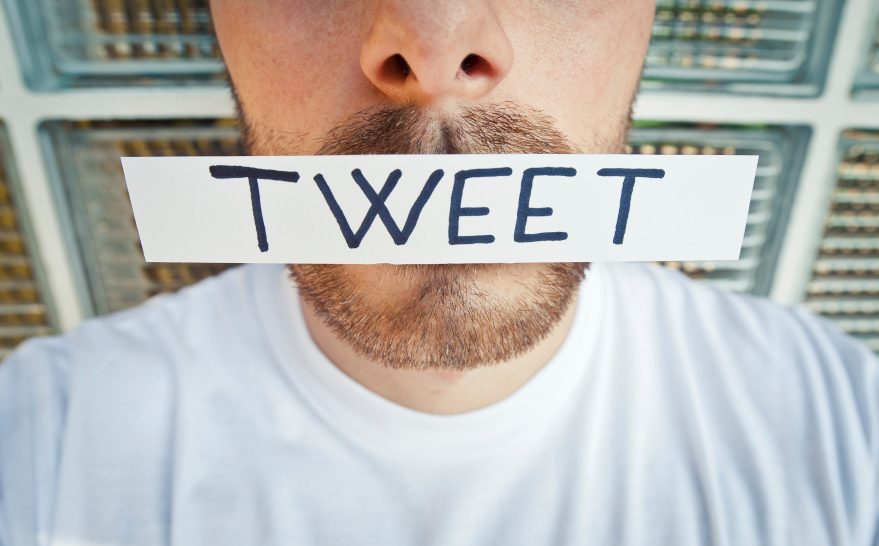Twitter Use by Student Athletes Can Be a Hit -- Or a Misstep

iStockphoto
Follow us on Twitter:@BaylorUMediaCom
Contact: Terry Goodrich, Assistant Director of Media Communications, (254) 710-3321
WACO, Texas (Dec. 14, 2012) -- With a single social-media misstep, student-athletes could lose athletic eligibility or a scholarship. But that's not stopping them from using Twitter - sometimes even during games, when they may see harsh criticism of their performances from fans, according to a study conducted by Baylor University and Clemson University researchers.
While many college athletic teams prohibit student-athletes from using social media during games, some breach the rules to get a "real-time" commentary on how they are doing during the game, said Blair Browning, Ph.D., an assistant professor of communication in Baylor University's College of Arts & Sciences and lead author of the study.
The study, published in the International Journal of Sport Communication, was based on interviews with 20 student-athletes in an NCAA Division I university. Student-athletes said that they used Twitter to keep in contact with family and friends, communicate with their followers and access information about the games and their athletic performances.
The study, co-authored by Jimmy Sanderson, Ph.D., an assistant professor of communication studies at Clemson University, is called "The Positives and Negatives of Twitter: Exploring How Student-Athletes Use Twitter and Respond to Critical Tweets."
Twitter is ingrained into student-athletes' daily routine, with one athlete saying that "I mean, the kickers and snappers and me are kind of in the corner of the locker room . . . so I'll get on Twitter and I'm like, 'Great first half' . . . "
Other athletes said they wait until after games to use Twitter. In any case, comments often are critical or even abusive about the student-athlete both performance-wise and personally.
"It is tweet-worthy when fans show support because the alternative is obviously the norm," the researchers wrote.
VIDEO: Blair Browning, Ph.D., compares modern Twitter attacks with hate mail.
While athletes know that criticism comes with the turf, Twitter critics are especially brutal because "brazen confidence stems from the protection users have behind the phone or computer screen," researchers noted. Even when the critics messages are blocked by an athlete, some followers "somehow find another name and get on and do it again," one athlete said.
Student-athletes' response s to attacks range from shrugging them off to deleting them to using them as challenges to improve.
Others are finding an effective way to cope is through "sub-tweeting" -- referring to a detractor as "OOMF" ("one of my followers") and responding to a remark indirectly rather than using the critic's Twitter ID to spar online.
Some players see Twitter as a chance to brand themselves. But at the university level, they're also operating under the brand of the institution themselves, so "there are tensions," Browning said.
Student-athletes also are subject to greater stricter monitoring and penalties than professional athletes for a social-media blunder. While professionals may be fined or censured, they maintain their ability to play. But student-athletes stand to lose athletic eligibility or scholarships.
"Student-athletes are in a precarious position because they are amateurs, are managing educational pursuits while holding essentially a full-time job with their athletics demands," the researchers wrote.
While a coach may welcome the idea that "20,000 eyeballs" are following an athlete, "at the same time, they'll probably wake up in a cold sweat" about a tweet misstep, Browning said.
Despite how student-athletes handle the messages, critical tweets "are at their core an identity hit," the authors wrote.
One athlete said he felt "low-balled, disrespected . . . It was horrible, and you know, my family was sick on top of that so there was nothing I could do."
Sanderson said that educational institutions should embrace training in social media for student-athletes, including helping them manage critical tweets.
VIDEO: Blair Browning, Ph.D., talks about how universities can head off Twitter missteps by student-athletes.
*The study has been cited as a Distinguished Paper and will be presented at the Summit on Communication and Sport Feb. 22-24 in Austin.
ABOUT BAYLOR UNIVERSITY
Baylor University is a private Christian university and a nationally ranked research institution, characterized as having "high research activity" by the Carnegie Foundation for the Advancement of Teaching. The university provides a vibrant campus community for approximately 15,000 students by blending interdisciplinary research with an international reputation for educational excellence and a faculty commitment to teaching and scholarship. Chartered in 1845 by the Republic of Texas through the efforts of Baptist pioneers, Baylor is the oldest continually operating university in Texas. Located in Waco, Baylor welcomes students from all 50 states and more than 80 countries to study a broad range of degrees among its 11 nationally recognized academic divisions. Baylor sponsors 19 varsity athletic teams and is a founding member of the Big 12 Conference.
ABOUT BAYLOR COLLEGE OF ARTS & SCIENCES
The College of Arts & Sciences is Baylor University's oldest and largest academic division, consisting of 26 academic departments and 13 academic centers and institutes. The more than 5,000 courses taught in the College span topics from art and theatre to religion, philosophy, sociology and the natural sciences. Faculty conduct research around the world, and research on the undergraduate and graduate level is prevalent throughout all disciplines.